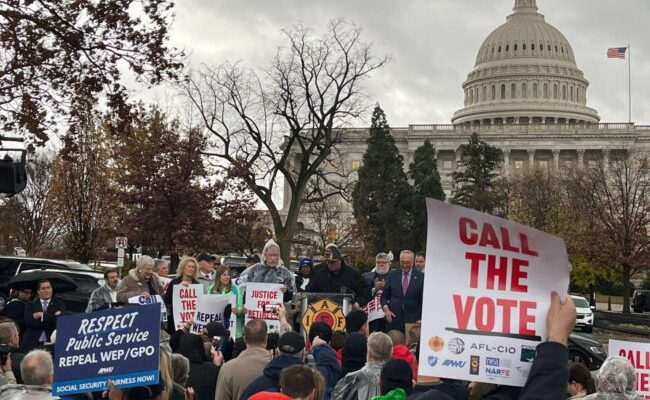The United States Senate is moving closer to a decisive vote on the Social Security Fairness Act, a proposed law aimed at restoring full Social Security benefits to millions of Americans.
While the bill has received bipartisan support in the House, its potential impact on the US deficit has become a focal point in the debate ahead of the Senate vote.
According to ABCNews, the Congressional Budget Office (CBO) estimated that the legislation would add $195 billion to federal deficits over the next decade.
This projection has raised concerns about the financial strain on the Social Security Trust Funds, which are already forecast to be unable to pay out full benefits by 2035.
The bill seeks to eliminate the Windfall Elimination Provision and the Government Pension Offset, two federal policies that reduce Social Security payments for certain public service workers and surviving spouses with government pensions.
ALSO READ: What Senate vote on Social Security Fairness Act mean for US public workers
Senate Majority Leader, Chuck Schumer highlighted the bill’s fairness, stating it would “ensure Americans are not erroneously denied their well-earned Social Security benefits simply because they chose at some point to work in their careers in public service.”
However, some lawmakers remain sceptical due to the fiscal implications.
Senator Mike Braun, a Republican from Indiana, expressed reservations about the additional costs, saying, “Nothing ever gets paid for, so if it’s further indebtedness, I don’t know.”
Similarly, Senator Rand Paul criticised the proposal, arguing, “Even for something that people consider to be a good cause, it shows a lack of concern for the future of the country.”
Other Republicans, such as Senator John Thune, have suggested that changes to the Social Security system should be considered as part of broader reform efforts to address its financial sustainability.
Despite these concerns, supporters like Senator Bill Cassidy have argued that the current system unfairly penalises public service workers. “We’re talking about police officers, firefighters, teachers, and other public employees who are punished for serving their communities,” Cassidy said.
ALSO READ TOP STORIES FROM NIGERIAN TRIBUNE








